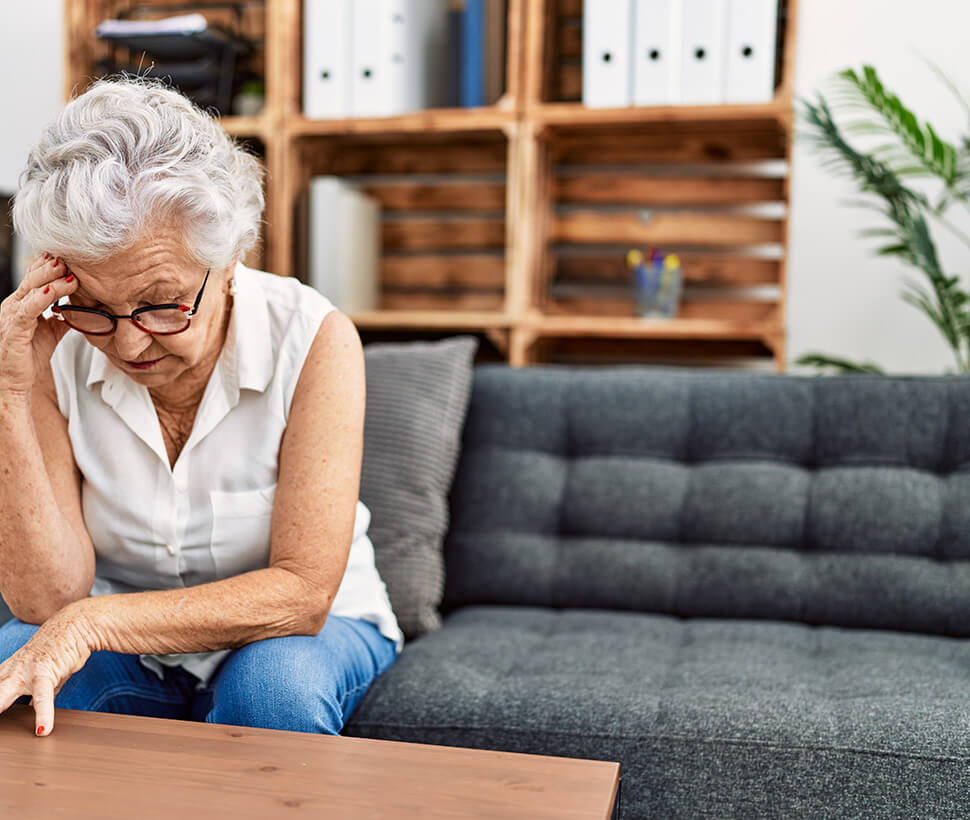
It is not surprising to hear that social isolation is an issue as we age. Unfortunately, isolation is also often associated with poor health, including poor memory and thought processes, depression, and functional decline.
Isolation does not always translate into loneliness, but for many, it does. In fact, there are two ways of looking at social isolation. Understanding these points of view might help you determine the best action to take to help prevent issues associated with isolation.
-
- Social disconnectedness based on being physically separated. Disconnectedness is determined by how robust your social network is. Meaning the quality of your social connections and frequency of interactions, not the number of individuals in your social network
- Perceived loneliness and a perceived lack of support. This has to do with feeling like you lack companionship, are left out, or are isolated from others. These are feelings that can lead to depression.
How we address isolation depends on our own personality and our own choices. And addressing isolation does not mean that we must do this by leaving our homes. Technology has made it possible to be connected even without in-person interactions.
There are some clinical issues that might lead a person to limit their interactions, but these can be addressed. These issues are things such as urinary incontinence, hearing loss, and visual acuity decline.
Our Aging Well Resource Coordinator can help with getting these issues addressed if they are impacting your interest in joining a social group.
Transportation is another barrier to being social. Make sure you read through our resources on transportation in another section or reach out to our Aging Well Resource Coordinator for help with transportation needs.
There are multiple resources in communities across the country to help seniors connect. This website and our Aging Well Resource Coordinator can help connect you with the resources available in your community.
Ways to Connect
Consider laying out a plan for staying connected. Here are some tips to help you connect and help minimize isolation:
- Address any issues that might make you embarrassed to leave your home
- Consider volunteer work
- Seek out and join clubs that interest you
- Participate in church activities
- Schedule regular time with family and friends
- If you have grandchildren, set aside time to spend with them
- Utilize Skype, FaceTime, GrandPad, and other technologies and social media to connect without going out of the house if staying in is appropriate
Hobbies
Hobbies are good for both your mental and physical health. They help keep your mind sharp and boost your mood.
AARP has some suggestions for a few ways to discover potential hobbies that interest you:
- Sign up for a class at your local community college, continuing education, community center, or through online courses.
- Go along with friends as they enjoy their hobbies, whether it is hiking, bowling, going to car shows, or anything in between.
- Join a local club or group. Meetup is one way to find groups organized around certain hobbies.
- Try volunteering as many hobbies involve an activity you enjoy and giving back, such as being a mentor or a volunteer coach.
- If you want to combine family time with a hobby, see what other family members are up to.
The Benefits of Socialization as You Age
For more on the importance of community and tips on how to enhance your social life, head to our blog post, The Benefits of Socialization as You Age.


